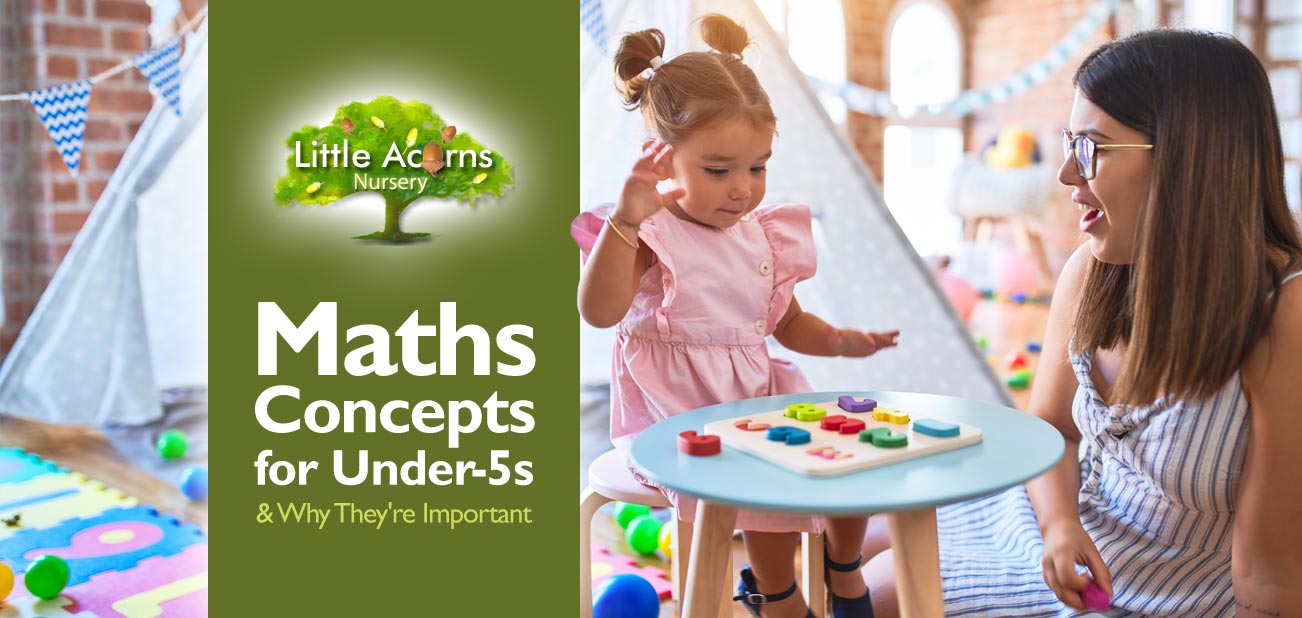
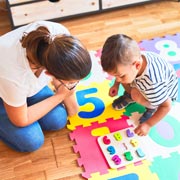 Once babies have transformed into toddlers, it’s never too early to introduce them to maths-based concepts and language. Indeed, introducing under-fives to such concepts in the earliest years will benefit them hugely as it lays the foundations for future learning. That’s one of the main reasons it is a part of the EYFS curriculum. Continuing this learning at home will also help them instinctively understand that mathematics is a normal and integral part of everyday life. As such, there is no need for it to be perceived as a daunting topic. With all that in mind, today’s guide explores why the early introduction of mathematics is so beneficial to under-fives and how parents and caregivers play a vital role in encouraging their mathematical curiosity, knowledge, and confidence.
Once babies have transformed into toddlers, it’s never too early to introduce them to maths-based concepts and language. Indeed, introducing under-fives to such concepts in the earliest years will benefit them hugely as it lays the foundations for future learning. That’s one of the main reasons it is a part of the EYFS curriculum. Continuing this learning at home will also help them instinctively understand that mathematics is a normal and integral part of everyday life. As such, there is no need for it to be perceived as a daunting topic. With all that in mind, today’s guide explores why the early introduction of mathematics is so beneficial to under-fives and how parents and caregivers play a vital role in encouraging their mathematical curiosity, knowledge, and confidence.
The Benefits of Understanding Maths Concepts in the Early Years
As well as the obvious advantage of improving numeracy skills, learning mathematical language and concepts at an early age has several key benefits for under-fives.
Enhanced Vocabulary Development & Language Skills
Children exposed to rich mathematical language will naturally have stronger vocabularies. This, in turn, will facilitate enhanced communication skills, for example, through the mastering of such things as descriptive, comparative, and positional words.
Improved Cognitive Skills
Learning numeracy skills is like a subtle workout for the mind. Such activity is known to stimulate brain development and improve memory, attention, and critical thinking skills. Each of these benefits will allow children to make connections and solve problems more easily.
Stimulated Creativity & Imagination
Mathematics isn’t just about numbers; it also involves creativity. For example, children can explore patterns, shapes, and spatial relationships, each of which has maths at their heart. Indeed, maths is integral to design, art, music, dance, and many other creative areas that children can immerse themselves in.
“Studies show a direct correlation between early mathematical skills and later educational achievement.”
A Foundation for School Success
 Familiarity with mathematical terms and concepts also helps to prepare children for formal education, including in many areas other than pure mathematics. Understanding maths concepts from an early age will allow them to confidently engage in number-related exercises and discussions, greatly enhancing their school readiness across multiple topics. Such preparation will allow them to take maths-based challenges in their stride right from the moment they begin Reception Year in primary school. What’s even more striking is that studies show a direct correlation between early mathematical skills and later educational achievement.
Familiarity with mathematical terms and concepts also helps to prepare children for formal education, including in many areas other than pure mathematics. Understanding maths concepts from an early age will allow them to confidently engage in number-related exercises and discussions, greatly enhancing their school readiness across multiple topics. Such preparation will allow them to take maths-based challenges in their stride right from the moment they begin Reception Year in primary school. What’s even more striking is that studies show a direct correlation between early mathematical skills and later educational achievement.
What Kind of Maths Concepts Can Parents Teach Tots?
As you’ll see below, there are many different types of maths-related words and concepts that parents can help children grasp. As we said before, maths is all around us, so there are many opportunities to help little ones master mathematical concepts and language — even from an early age. Aside from learning the actual numbers, some examples include the following:
 Counting is the most obvious example. Counting can be introduced and practised by your little one in many, many situations, from counting how many more mouthfuls of food a child should eat, to the number of Lego blocks in a tower they’re creating.
Counting is the most obvious example. Counting can be introduced and practised by your little one in many, many situations, from counting how many more mouthfuls of food a child should eat, to the number of Lego blocks in a tower they’re creating.- Size is another maths-based concept where, given some parental guidance, little ones can soon begin to understand whether something is tiny, medium-sized, big, gigantic, tall, short, thin, or wide.
- Measurement is another maths-related concept for children to grasp, so encouraging them to learn when something is full, empty, long, heavy, light, etc., will stand them in good stead both linguistically and in terms of mathematics.
- Similarly, comparatives will be useful for children to understand. It’s essential for them to grasp concepts and language like more, less, equal, different, the same, identical, and so on.
 Shapes also have roots in maths, so children should get familiar with 3-sided triangular shapes, 4-sided shapes like squares and rectangles, and so on.
Shapes also have roots in maths, so children should get familiar with 3-sided triangular shapes, 4-sided shapes like squares and rectangles, and so on.- Positions are also founded in mathematics, so children should be encouraged to recognise when something is on, off, inside, outside, up, down, and suchlike.
- Finally, time also has its roots in numbers and mathematics. Therefore, it will help children to not only tell the time eventually but also understand the meaning behind words like early, late, now, later, soon, etc.
How to Go About It
Parents, caregivers and relatives can help children under five learn about these mathematical concepts and the language that surrounds them. Games, books, and even songs, for example, often include facets of maths and maths language that adults can draw children’s attention to and get them involved in. Counting fingers, toes, and objects like building blocks is another obvious example and one which can be extended to include much of the maths-related vocabulary that we mentioned earlier (numbers, comparatives, positions, shapes, etc.).  Creative endeavours can also be vehicles through which supervising adults can highlight elements of mathematics that are built into designs and creations that children may generate. Patterns and shapes are obvious examples of that. Last but not least, parents can involve children in maths facets which are integral to everyday life, for instance, counting items when out shopping, or measuring when putting ingredients together for a meal. Children will love being more involved in such activities and will learn about maths in a fun, natural, and engaging way. Doing so will create the strongest foundations for their future learning.
Creative endeavours can also be vehicles through which supervising adults can highlight elements of mathematics that are built into designs and creations that children may generate. Patterns and shapes are obvious examples of that. Last but not least, parents can involve children in maths facets which are integral to everyday life, for instance, counting items when out shopping, or measuring when putting ingredients together for a meal. Children will love being more involved in such activities and will learn about maths in a fun, natural, and engaging way. Doing so will create the strongest foundations for their future learning.
We may follow up at a later date with some in-depth activity ideas that will help children learn more about maths and the language surrounding it, so watch this space!
Little Acorns: an Outstanding Nursery in Clayton-le-Woods, Chorley
Award-Winning Childcare in Central Lancashire


Little Acorns gives babies, toddlers and preschoolers the very best start in life at their Clayton-le-Woods nursery near Chorley. That’s backed up by being rated an Outstanding Provider by Ofsted and a prestigious National Nursery Award too. So, if you want the very best for your child, choose Little Acorns Day Nursery for their weekday childcare and we’ll ensure they absolutely thrive and are prepared for success.
Get in touch today to register your child for a nursery place, set a date for a guided tour of the setting, or ask any questions:
Little Acorns is an outstanding nursery and preschool located in Clayton-le-Woods, Chorley, near Clayton Brook, Clayton Green, Thorpe Green, Pippin Street, Buckshaw Village, Whittle-le-Woods, Farington, Bamber Bridge, Lostock Hall, Euxton, Leyland and Penwortham.

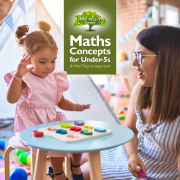
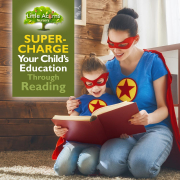
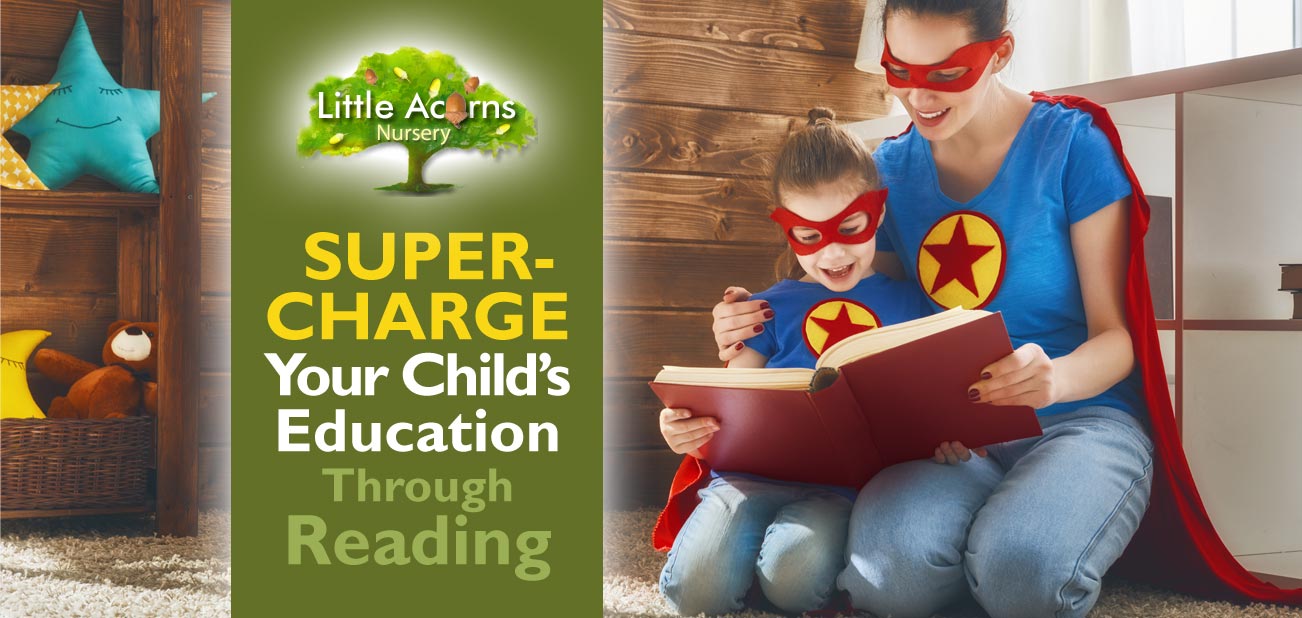
 Last year, we wrote a detailed post outlining
Last year, we wrote a detailed post outlining  Interestingly, under-five children who came from disadvantaged backgrounds were shown to benefit even more than those who didn’t. For this reason, reading with parents/carers has been proposed as a possible way to close the performance deficit often seen with children from such backgrounds. It may well represent a perfect solution to even up the playing field.
Interestingly, under-five children who came from disadvantaged backgrounds were shown to benefit even more than those who didn’t. For this reason, reading with parents/carers has been proposed as a possible way to close the performance deficit often seen with children from such backgrounds. It may well represent a perfect solution to even up the playing field. Deeper bonds with parents/carers (after all, this is quality time spent together, one-to-one);
Deeper bonds with parents/carers (after all, this is quality time spent together, one-to-one);